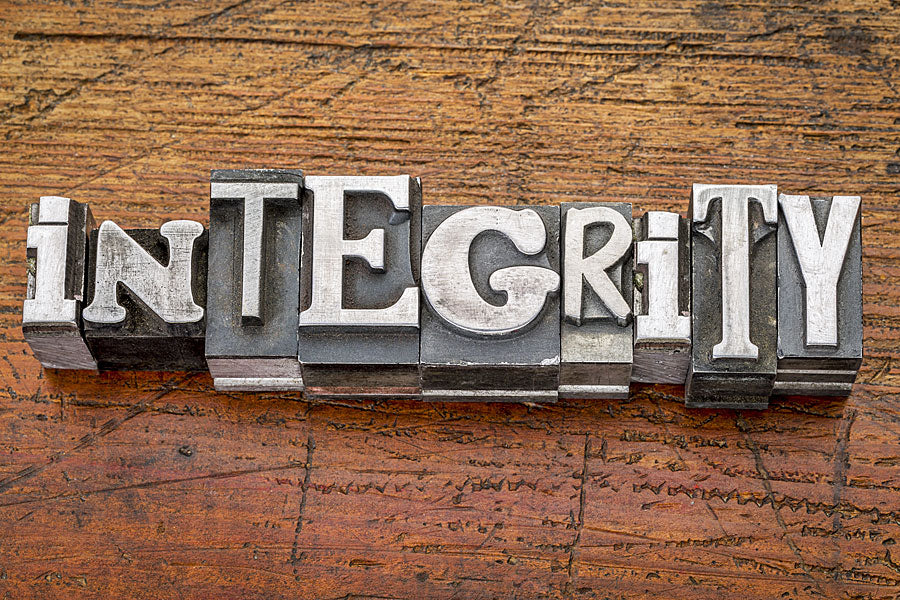Trusted for 24+ Years
Are You Under The Invisible Grip Of Coercive Control?

Dr. Lisa Lawless, CEO of Holistic Wisdom
Clinical Psychotherapist: Relationship & Sexual Health Expert

What Is Coercive Control?
Coercive control is an abusive pattern of behavior designed to take away a person's sense of self and freedom to make their own choices. It is ongoing oppression and emotional and mental terrorism often used to instill fear and compliance in a partner.
It's unfortunately quite common in abusive relationships and is a form of emotional and psychological abuse. Its victims are often made to feel that the abuse is their own fault and often do not tell anyone what they are enduring. These factors make it easy for them to stay in a toxic and abusive relationship without anyone knowing.
Coercive control isn't just found in romantic partnerships; it can also infiltrate friendships and family relationships. It can be seen in a parent imposing excessively restrictive rules or punishments on a child, a sibling exploiting another sibling's insecurities, or a friend manipulating another to address their needs.
Victims are often in a position of emotional dependence in various ways. Often the abusive partner pressures, guilts, or outright restricts certain activities, which is done in a manner that undermines their partner's self-esteem.
How Does Coercive Control Occur?
This can take various forms, such as manipulation, gaslighting, and declaring that it is because they love you or that you cannot be trusted that they must restrict your freedom to make your own choices. In some cases, it can lead to physical violence.
The crushing weight of coercive control can cause various emotional and mental effects, such as anxiety, depression, and even post-traumatic stress disorder (PTSD).
It is essential to understand that no one should feel imprisoned or manipulated in their relationships; rather, healthy love thrives in an environment of respect, trust, and growth.
Who Are The Most Common Victims Of Coercive Control?
Anyone can be a victim of coercive control, regardless of gender, age, ethnicity, or socio-economic status. However, some groups of people may be more vulnerable to it.
Research shows us that women ages 18 to 24 are the most common victims of coercive control. Nearly 48% of women reported at least one type of coercive control by their spouses.
In addition to women, people in vulnerable situations economically, socially, or emotionally are also more likely to become victims of coercive control. For instance, those who are financially dependent on their partners, have lower self-esteem, or who are isolated from their family and friends may be more susceptible.
Other vulnerable people may include older adults who depend on caregivers and LGBT+ people who may experience 'out-ing' threats or have increased social vulnerability and lack relationship experience and modeling.
The Signs Of Coercive Control
If you or someone you know is in a relationship with controlling behavior, such as isolation, constant criticism, or threats, there is likely a power dynamic of coercive control. Here are some examples:
Isolating
"You don't need anyone else but me. Your friends and family are bad influences, and they don't really care about you like I do."
Monitoring & Control
"Where were you? Who were you with? I want you to check in with me every hour."
Threats & Intimidation
"If you leave me, I will kill myself."
"If you leave me, I will kill you."
"I'll make sure you never see the kids again."
"You don't want to make me angry; you'll be sorry."
Gaslighting
"You're imagining things. I never said that."
"You're crazy, that never happened."
Degradation
"If you ever leave me, you will never find anyone who will love you as much as I do."
"You're worthless; no one else would ever want you."
"You're so stupid; you can't do anything right."
Controlling Resources
"I earn the money in this house, so I decide how it's spent."
Excessive Jealousy & Accusations
"I saw you looking at him. Are you cheating on me?"
"I saw you like their post; this means you are flirting with them."
Conditioning
"If you loved me, you would do this for me."
Withholding
"If you don't behave, I'll stop paying for your phone bills."
"If you don't do this for me, we won't have sex until you do."
Overprotection & Excessive Concern Disguised As Care
"I'm only doing this for your own good. You're not safe if you go out without me."
What Should You Do?
If you suspect that your partner is coercively controlling you, here are things you should do:
Trust Your Feelings
If you feel uncomfortable, emotionally exhausted, or manipulated in a relationship, pause and listen to those feelings and trust them. These are not just fleeting emotions; it's vulnerability that needs to be seen and valued. Think of your emotions as a personal compass that are valid and should be respected.
Seek Support
Reach out to trustworthy and reliable people in your life or seek professional help. Numerous resources are available for individuals dealing with coercive control, including helplines, empowering community circles, and compassionate therapists, all there to facilitate your journey to self-empowerment.
Establish Boundaries
Adopt the courageous stance of speaking your truth of what behavior you find acceptable and what crosses the line. Stand firm in these boundaries, even if the controlling person challenges them. Any relationship that doesn't value your needs and peace of mind is not worth remaining in.
Protect Your Safety
If you fear for your safety, physically distancing yourself from any potential harm is paramount. Seek a safe place with family, a trusted friend's house, or a community center if needed.
Reaching out to others is vital as our silence often weaves a shroud over our fears, but breaking that silence is the first step toward relief. If needed, involve the relevant legal and support services specializing in these situations.
Remember, most victims downplay how serious their situation is until it is too late. If a partner has ever shown physical violence or threatened it, please reach out for the resources to help you navigate these tumultuous waters and work toward a more secure, healthy, and empowering future.
Prioritize Self-Care
Immerse yourself in activities that fortify both your physical and mental well-being. Regular exercise, a balanced diet, good sleep, healthy relationships, joyful experiences, and mindfulness are stepping stones to forging robust emotional armor. We must continually replenish ourselves with nourishing habits, enhancing our capacity for self-love.
In Closing
Everyone has a right to experience safety, respect, and worth in all their relationships. By bravely identifying and combating manipulative power dynamics, we have the capacity to have a healthy relationship with ourselves and potentially a partnership that allows us to grow into our best selves.





